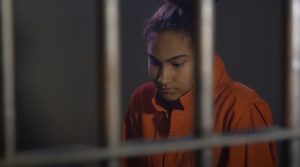When Michigan’s COVID-19 case rates and hospitalizations were among the lowest in the country earlier in the pandemic, Gov. Gretchen Whitmer touted the state’s science-based restrictions.
But as the state’s latest case and hospitalization surges have shot it past all 49 other states, Whitmer and her health department haven’t turned back to those same restrictions.
Asked about her resistance to resuming some of the same restrictions that appeared to work in slowing the spread of coronavirus in the past, the governor said Michigan doesn’t have a policy problem — it has a variant and compliance problem.
“We’re having a lot of conversations about what makes sense to contribute to bringing down the spread but here’s what we know: national experts with whom we consult have said you don’t have a policy problem. Michigan still has some of the strongest protocols in place, capacity restrictions, we’ve got a mask mandate,” Whitmer said during her Wednesday, April 14, virtual press conference.
“Other states have dropped all of these things. We still have them in Michigan and yet we have high positivity. So it’s not a question about whether or not the policy is the right policy, it’s really more of a testament to the fact that we have combining issues.
“We have variants that are very present here in Michigan at greater numbers than other states are seeing. We have reservoirs of people who didn’t get COVID, thankfully, but are now vulnerable to these variants, and we have exhaustion, the fatigue where people are dropping their guard.”
Whitmer doubled down Wednesday, encouraging residents to continue to wear masks, practice social distancing, avoid large crowds, and get vaccinated when a shot is available to them, instead of turning to more restrictions.
Related: As Michigan’s coronavirus cases surge, experts say it’s hard to pinpoint an exact cause
Last Friday, the governor also recommended all high schools go virtual, youth sports take a pause, and residents to avoid indoor dining for two weeks. However, she and the health department stopped short of ordering the break.
But on Monday, Dr. Rochelle Walensky, director for the U.S. Centers for Disease Control and Prevention, said Michigan’s surge can’t be fixed with vaccines alone.
Instead, mitigation strategies like closing schools, restaurants and large gathering spots would be more effective, Walensky said, explaining that the protection provided by vaccines takes two to six weeks and wouldn’t immediately address Michigan’s needs.
“Really, what we need to do in those situations is shut things down,” Walensky said.
As of Wednesday, April 14, Michigan was reporting 7,006 new cases per day. Its 79 confirmed and probable cases per 100,000 people per day over the last week remains the worst in the nation.
The state’s known cases of the new, more contagious variants are indeed higher than most other states. Michigan’s 2,753 variant cases — spread across 62 counties — is second only to Florida, which has more than 3,500.
“Because of this sharp rise in cases overall, there are likely many more (variant cases) that we do not yet know about, which makes the risk of contracting COVID even greater,” said Dr. Joneigh Khaldun, chief medical executive for the Michigan Department of Health and Human Services.
As of Tuesday, April 13, Michigan had gotten at least one dose of vaccine to 3,469,444 residents, and fully vaccinated more than 2 million people — or 28.1% of residents 16 years and older.
More than 70% of residents 65 years and older have gotten at least partially vaccinated, as have about 50% of resident 50 to 64 years old.
Gov. Whitmer has requested that the federal government send more vaccines to hotspots like Michigan, but Walensky disagreed with that tactic. She told White House reporters that diverting vaccines away from states that aren’t surging to fix hot spot states could open the door for more outbreaks, according to the AP.
Read more on MLive:
Here’s what we know about the Johnson & Johnson vaccine pause
Whitmer carves out priorities for Michigan’s $18.8 billion in stimulus funds
No, the COVID-19 vaccine will not change your DNA
Transportation, tech and trust: Experts discuss who could be left behind by vaccine rollout






